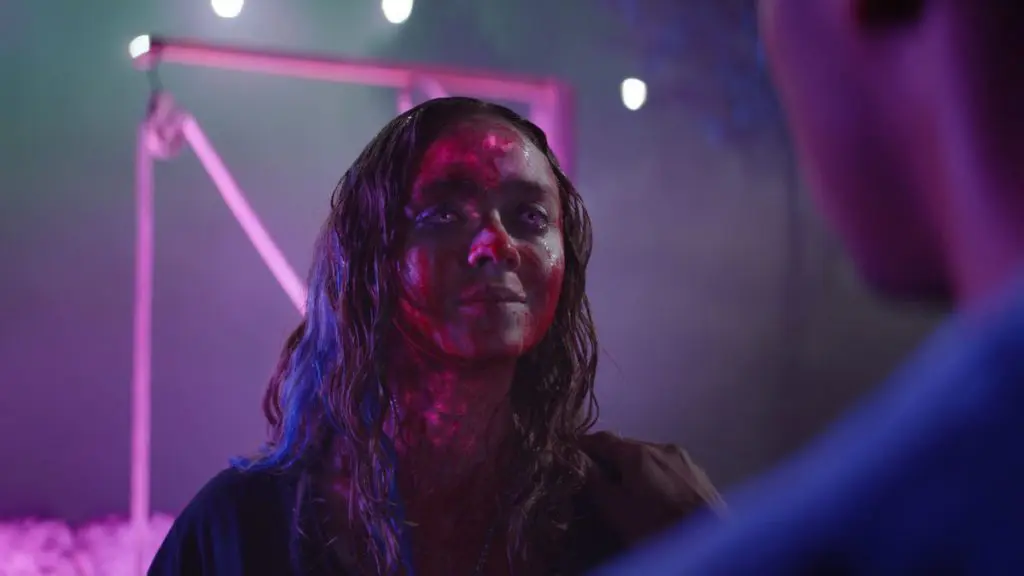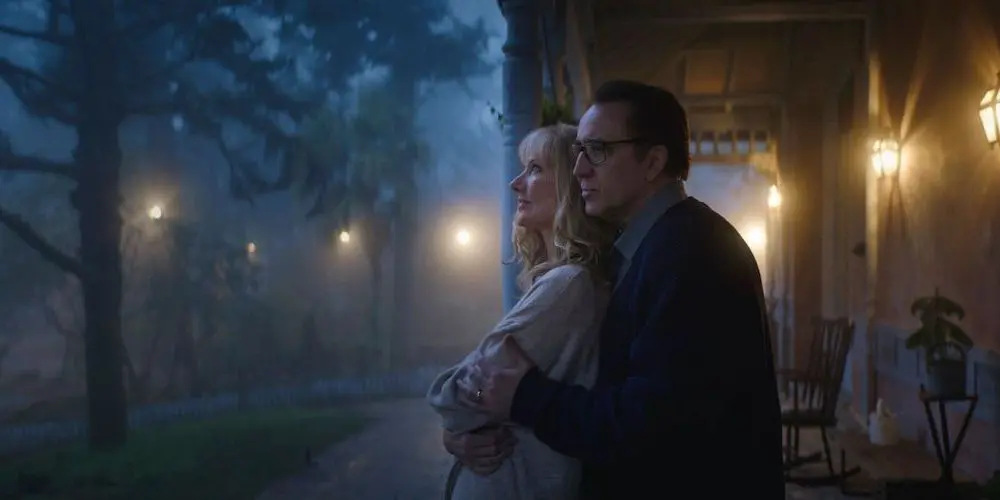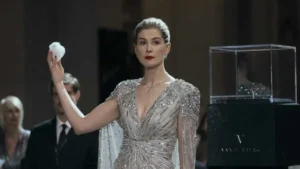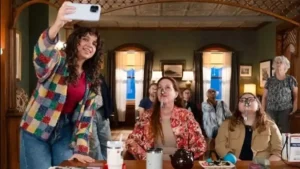Summary
Color Out of Space is as good an adaptation of this story as you could get: hilarious, terrifying, disgusting, and with a wondrously wacko Nic Cage performance.
Color Out of Space comes as the return of director Richard Stanley 28 years after his last feature-length directorial venture, as well as since his firing off of 1996’s The Island of Dr. Moreau. For him to make his return by adapting one of H.P. Lovecraft’s most loony, enduring and revered stories, and one that Lovecraft himself cited as his favorite of his own, is an intrepid move only exacerbated by how diligently Stanley has worked to create this as an absolutely bonkers face-melter designed to absolutely annihilate the people that are gonna inevitably get blazed at 1 AM and throw this thing on. They aren’t prepared for what it has in store for them.
The story follows The Gardners who live in a relatively remote house out in the woods and work as a typically quirky dysfunctional family who ultimately loves each other at the end of the day. The father Nathan (Nicolas Cage, reaching new heights of Cage insanity) tends to the crops and the animals, including some newly acquired alpacas that he takes particularly special care of. The mother Theresa (Joely Richardson) works from home, is more present with the kids, and has recently undergone some sort of surgical operation. One of the sons Benny (Brendan Meyer) seems particularly interested in outer space, the daughter Lavinia (Madeleine) performs seances and reads from her personal Necromonicon, and the youngest child Jack (Julian Hilliard) seems to have a thing for dinosaurs.
The family’s idyllic life among the trees gets torn to shreds when one night a meteor crash lands in their front yard, bringing with it strange, hallucinatory visions and colors that Cage’s character can only describe as never having been seen before. The events begin innocuously enough but the effects of whatever has fallen from above begin to affect the land and the family in ways they can’t even understand no matter how much they try. Color Out of Space is a slow-burn science fiction horror movie about our place in the universe, and how helpless we are to the cosmic unknown. As the family slowly falls further and further into madness and their world becomes a haze of unknowable energy displayed in a spectrum of pinks and purples, it becomes clear that nothing can stop what is going to happen to them.
The movie plays as notably farcical in this way. Even in the face of this otherworldy, extramundane power, the family still talks to each other as if they will be able to escape it. They still think everything will be alright. The cruel joke of the movie is our inability to see past our tiny existence even in the face of violent celestial terror. At its core, it’s nihilistic and terrifying, but the film is played with a frequent gleeful absurdity, giving in to the loopy oddities of some of its weirder elements. It wouldn’t be far off to call large swaths of this a straight-up horror-comedy.

This is, of course, thanks in large parts to the performance of Cage who is able to go completely nutty in a way that rivals some of his own past performances. As he starts to lose his sanity and his world begins to collapse he takes on a ludicrous voice affectation as he yells at and berates his family; at one point he also just yells and screams inside his car while punching the steering wheel and roof for a good 10 to 15 seconds. It’s undeniably hilarious and intentionally so — it works to offset the horrifyingly dark material that comes later. The movie dares you to laugh at it while it sinks its way into your skin.
Once it gets to the point of no return, we dip into the realm of slimy, icky body horror reminiscent of such disgusting gross-out classics like From Beyond, Society, and yes, even The Thing. Stanley isn’t afraid to lean into his influences and it works in his favor; this plays like some of the more transcendently weird, gross horror fare that the cinematic landscape has largely left behind. We even dip into splatter horror for a second here, but with a hefty dose of sadistically dark thematic context.
Stanley ensures the film takes its time reaching its earth-shattering, phantasmagoric climax and by the time the film is over the film makes the audience feel like they’ve been taken on a hallucinatory vision quest to the outer reaches of another realm. It’s a freaky ride down a rabbit hole of bleak, beautiful inhumanity. Color Out of Space pits our human existence against the existential dread of the great unknown and posits the obvious: we’re totally doomed. And there’s something funny about that.




